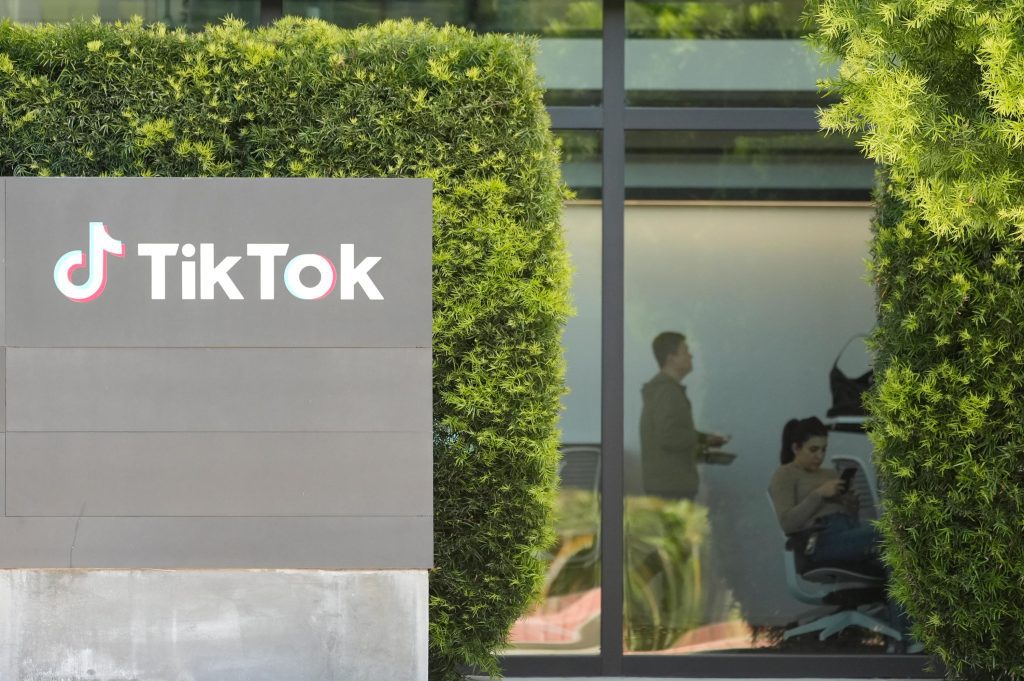By Matt O’Brien, Associated Press
U.S. lawmakers are threatening to ban TikTok but also say they are giving its Chinese parent company a chance to keep it running.
The idea behind a bipartisan bill passed by the U.S. House of Representatives on Wednesday is that TikTok fans in the U.S. can keep using the app as long as its Beijing-based owner, ByteDance, gives up control. “ByteDance doesn’t have to go through a difficult process,” stated U.S. Rep. Raja Krishnamoorthi, an Illinois Democrat and bill co-sponsor. “They could make it easier by simply selling @tiktok_us. It’s up to them.”
However, experts believe that the process may not be as straightforward as lawmakers suggest.
But it’s not going to be as simple as lawmakers are making it sound, according to experts.
WHO WOULD BUY TIKTOK?
While some individuals have expressed interest in purchasing TikTok’s U.S. operations — including “Shark Tank” personality Kevin O’Leary — there are various challenges, including a 6-month time limit for completing the acquisition.
“Someone would need to be prepared to pay a significant amount for this product and system,” noted Graham Webster, a researcher at Stanford University. “However, even if a buyer has the financial means and is ready to negotiate, this kind of acquisition process does not happen quickly.”
Major tech companies could afford to buy TikTok, but they would probably encounter intense scrutiny from antitrust regulators in the U.S. and China. Nonetheless, if the bill becomes law and withstands First Amendment court challenges, it could lower TikTok’s purchase price.
“The legislation would mainly reduce the selling price,” explained Matt Perault, director of the University of North Carolina’s Center on Technology Policy, which receives funding from TikTok and other tech companies. “As the 180-day deadline approaches, the pressure on the company to sell or face a complete ban would be high, potentially enabling buyers to acquire it at a lower price.”
HOW WOULD IT WORK?
The bill — which now moves to the U.S. Senate — calls for banning TikTok in the U.S. unless there is a “qualified divestiture.”
This can only happen if the U.S. president, through an interagency process, determines that TikTok is no longer controlled by a foreign adversary. Furthermore, the new U.S.-based TikTok would have to sever all ties with ByteDance, including no more collaboration on a content recommendation algorithm or data sharing agreement.
It reflects longstanding concerns that Chinese authorities could compel ByteDance to provide data on the 170 million Americans using TikTok. The worry stems from Chinese national security laws that mandate organizations to assist with intelligence gathering.
This bill is unusual in the way it targets a single company. Normally, a government body known as the Committee on Foreign Investment in the United States (CFIUS), led by the Treasury secretary, would review whether such a sale poses any national security threats.
HAS THIS HAPPENED PREVIOUSLY?
Yes. The Trump administration negotiated a agreement in 2020 that would have had U.S. companies Oracle and Walmart acquire a significant share in TikTok based on national security concerns.
The agreement would have also placed the responsibility on Oracle for hosting all of TikTok’s U.S. user data and ensuring computer systems are secure to meet national security requirements. Microsoft also made an unsuccessful offer for TikTok that its CEO Satya Nadella later described as the “strangest thing I’ve ever worked on.”
Instead of action by Congress, the 2020 arrangement was a response to then-President Donald Trump’s series of executive actions directed at TikTok.
However, the sale never happened for several reasons. Trump’s executive orders got delayed in court as the 2020 presidential election approached. China also imposed stricter export controls on its technology providers.
Incoming President Joe Biden in 2021 reversed direction and abandoned the legal proceedings. Now Biden says he’s in favor a bill that would prohibit TikTok if ByteDance won’t divest, and Trump is not.









